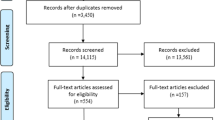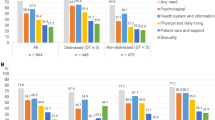Abstract
Purpose
With continual advancements in cancer care, improved outcomes, and increasing survivors, survivorship has become an important area of research. This project seeks to determine the current status of follow-up care in oncology.
Methods
An electronic survey was sent to the Canadian Association of Radiation Oncology members. Based on brief clinical scenarios pertaining to various survivor populations, questions were posed to determine routine follow-up practices.
Results
One hundred eleven radiation oncologists (RO) responded (44 % response rate); 29 % were female, 43 % were in practice <10 years, and most of Canada was represented. Most worked in centers with >10 oncologists (69 %) and saw >200 new consults per year (78 %). Only 10 % reported not following their patients routinely, mainly in those with breast cancer. Most would follow their central nervous system, gastrointestinal, head and neck, gynecologic, and genitourinary patients. Lack of resources and a belief that follow-up by family physicians (FPs) is equally effective were the top reasons for not following. Treatment toxicity and possibility of further treatment were the most common reasons for routine follow-up. The majority (55 %) would follow patients for <5 years, with 36 % for 5–10 years, and a minority (9 %) for longer than 10 years; 54 % would not change the frequency of follow-up, but 39 % would decrease and only 7 % would increase follow-up. Some felt transferring more care to other health professionals would require additional training and more guidelines. Survivorship care plans are underutilized.
Conclusions
Transfer of follow-up care to FPs is desired and feasible. This would allow for more comprehensive medical care and improve access to care for newly diagnosed patients. The development and usage of survivorship care plans would improve this care.
Implications for cancer survivors
Survivors may be increasingly followed by family physicians. Better coordination between oncologists and family physicians, including the use of survivorship care plans, may facilitate this transition.
Similar content being viewed by others
References
Hewitt M, Greenfield S, Stovall E. From cancer patient to cancer survivor: lost in transition. Washington: The National Academies Press; 2006.
Ristovski-Slijepcevic S. Environmental scan of cancer survivorship in Canada: conceptualization, practice and research. 2008. http://www.partnershipagainstcancer.ca/wp-content/uploads/Survivorship_Svetlana_Ristovski-Slijepcevic.pdf. Accessed 2 Aug 2014.
Tjandra JJ, Chan MK. Follow-up after curative resection of colorectal cancer: a meta-analysis. Dis Colon Rectum. 2007;50:1783–99.
Jeffery M, Hickey BE, Hider PN. Follow-up strategies for patients treated for non-metastatic colorectal cancer. Cochrane Database Syst Rev. 2007;1, CD002200.
Renehan AG, Egger M, Saunders MP, O'Dwyer ST. Impact on survival of intensive follow up after curative resection for colorectal cancer: systematic review and meta-analysis of randomised trials. BMJ. 2002;324:813.
Rosen M, Chan L, Beart Jr RW, Vukasin P, Anthone G. Follow-up of colorectal cancer: a meta-analysis. Dis Colon Rectum. 1998;41:1116–26.
Figueredo A, Rumble RB, Maroun J, et al. Follow-up of patients with curatively resected colorectal cancer: a practice guideline. BMC Cancer. 2003;3:26.
Papagrigoriadis S. Follow-up of patients with colorectal cancer: the evidence is in favour but we are still in need of a protocol. Int J Surg. 2007;5:120–8.
Augestad KM, Rose J, Crawshaw B, Cooper G, Delaney C. Do the benefits outweigh the side effects of colorectal cancer surveillance? A systematic review. World J Gastrointest Oncol. 2014;6:104–11.
Kew FM, Roberts AP, Cruickshank DJ. The role of routine follow-up after gynecological malignancy. Int J Gynecol Cancer. 2005;15:413–9.
Kew FM, Cruickshank DJ. Routine follow-up after treatment for a gynecological cancer: a survey of practice. Int J Gynecol Cancer. 2006;16:380–4.
Vistad I, Moy BW, Salvesen HB, Liavaag AH. Follow-up routines in gynecological cancer—time for a change? Acta Obstet Gynecol Scand. 2011;90:707–18.
Dalbagni G, Bochner BH, Cronin A, Herr HW, Donat SM. A plea for a uniform surveillance schedule after radical cystectomy. J Urol. 2011;185:2091–6.
Richert-Boe KE. Heterogeneity of cancer surveillance practices among medical oncologists in Washington and Oregon. Cancer. 1995;75:2605–12.
Schwartz DL, Barker Jr J, Chansky K, et al. Postradiotherapy surveillance practice for head and neck squamous cell carcinoma—too much for too little? Head Neck. 2003;25:990–9.
Virgo KS, McKirgan LW, Caputo MC, et al. Post-treatment management options for patients with lung cancer. Ann Surg. 1995;222:700–10.
Virgo KS, Chan D, Handler BS, Johnson DY, Goshima K, Johnson FE. Current practice of patient follow-up after potentially curative resection of cutaneous melanoma. Plast Reconstr Surg. 2000;106:590–7.
Parmeshwar R, Margenthaler JA, Allam E, Chen L, Virgo KS, Johnson FE. Patient surveillance after initial breast cancer therapy: variation by physician specialty. Am J Surg. 2013;206:218–22.
National Physician Survey: Results for medical specialists. 2010. http://nationalphysiciansurvey.ca/result/2010-med/. Accessed 2 Aug 2014.
Zlomislic D. Number of specialized doctors who are unemployed growing, study finds. Toronto Star 2013;News, Canada. http://www.thestar.com/news/canada/2013/10/10/number_of_specialized_doctors_who_are_unemployed_growing_study_finds.html
Grunfeld E, Mant D, Yudkin P, et al. Routine follow up of breast cancer in primary care: randomised trial. BMJ. 1996;313:665–9.
Del Giudice ME, Grunfeld E, Harvey BJ, Piliotis E, Verma S. Primary care physicians’ views of routine follow-up care of cancer survivors. J Clin Oncol. 2009;27:3338–45.
Ganz PA. Survivorship: adult cancer survivors. Prim Care. 2009;36:721–41.
Salz T, McCabe MS, Onstad EE, et al. Survivorship care plans: is there buy-in from community oncology providers? Cancer. 2014;120:722–30.
Mayer DK, Gerstel A, Walton AL, et al. Implementing survivorship care plans for colon cancer survivors. Oncol Nurs Forum. 2014;41:266–73.
Dulko D, Pace CM, Dittus KL, et al. Barriers and facilitators to implementing cancer survivorship care plans. Oncol Nurs Forum. 2013;40:575–80.
Salz T, Oeffinger KC, McCabe MS, Layne TM, Bach PB. Survivorship care plans in research and practice. CA Cancer J Clin 2012;62(2):101–17.
American Society of Clinical Oncology. ASCO Cancer Treatment Summaries.;2014. http://www.cancer.net/survivorship/follow-care-after-cancer-treatment/asco-cancer-treatment-summaries. Accessed 2 Aug 2014.
Shayne M, Culakova E, Milano MT, Dhakal S, Constine LS. The integration of cancer survivorship training in the curriculum of hematology/oncology fellows and radiation oncology residents. J Cancer Surviv. 2014;8:167–72.
Conflict of interest
The authors have no conflicts of interest to declare.
Role of the funding source
This research was funded in part by the Northern Cancer Control Strategy Discovery Grant.
Author information
Authors and Affiliations
Corresponding author
Appendix 1
Appendix 1







Rights and permissions
About this article
Cite this article
Ye, A.Y., Cheung, W.Y., Goddard, K.J. et al. Follow-up patterns of cancer survivors: a survey of Canadian radiation oncologists. J Cancer Surviv 9, 388–403 (2015). https://doi.org/10.1007/s11764-014-0390-2
Received:
Accepted:
Published:
Issue Date:
DOI: https://doi.org/10.1007/s11764-014-0390-2




